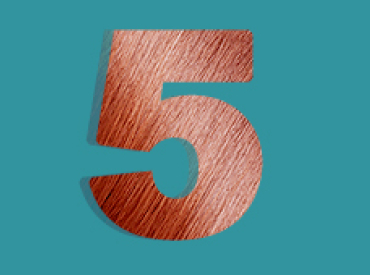Why Taking Aspirin Regularly May Affect Hair Loss Treatment
A short paper published in the Dermatologic Therapy medical journal claims topical hair loss medication may be less effective for some people taking low-doses of aspirin, daily.
Men and women with androgenetic alopecia (AGA), better known as Male Pattern Baldness and Female Pattern Hair Loss, took part in a study into the effects of regular low dose aspirin on those using minoxidil.
Minoxidil is the only MHRA licensed and FDA approved hair loss treatment for both men and women with genetic hairloss. Although another oral option - finasteride 1mg - has the same awards, this is suitable for men only.
The research was conducted by a team comprising members from the United States, Australia, Croatia, India, Iran and Italy, who advise it is the "first study to report the effect of low‐dose daily aspirin use on the efficacy of topical minoxidil".
In an overview of the study, the authors explain the science and reasoning behind it, as follows:
"Minoxidil is a pro‐drug converted into its active form, minoxidil sulfate, by the sulfotransferase enzymes in the outer root sheath of hair follicles. Previously, we demonstrated that sulfotransferase activity in hair follicles predicts response to topical minoxidil in the treatment of AGA. In the human liver, sulfotransferase activity is significantly inhibited by salicylic acid. Low‐dose OTC [over-the-counter] aspirin (7581 mg), a derivative of salicylic acid, is used by millions of people daily for the prevention of coronary heart disease and cancer. It is not known whether oral aspirin inhibits sulfotransferase activity in hair follicles, potentially affecting minoxidil response in AGA patients."
In an effort to establish whether or not use of minoxidil was affected in cases where adults with Male and Female Pattern Hair Loss also took low-doses of aspirin on a daily basis, a two week study was carried out using 24 participants. Follicular sulfotransferase enzymatic activity was determined after 14 days of doses of aspirin being taken orally.
Of the 24 subjects, half were initially predicted to respond to minoxidil; after 14 days of taking aspirin the number predicted to respond dropped to 27 per cent. It is unclear, however, how researchers determined the 'predicted response to minoxidil'.
 Click to See Belgravia Hair Loss Treatment Success Stories for Men and Women (Results May Vary and Are Not Guaranteed)
Click to See Belgravia Hair Loss Treatment Success Stories for Men and Women (Results May Vary and Are Not Guaranteed)
This is an extremely small-scale and short-term study, with far more information and research needed to draw a true conclusion as to the links between regular aspirin-use and its effects on topical minoxidil use. That said, it is certainly something for medical professionals and hair loss specialists to be mindful of - particularly in cases where patients are concerned that their treatment is not working as well as they had hoped even after waiting the minimum three-to-six months usually advised.
It is also something which should come to light before treatments are even recommended via the medical profile information submitted during a consultation. That way appropriate solutions can be suggested, and their use monitored on an on-going basis - a popular benefit those who go it alone with store-bought solutions may not have access to.
At present, Belgravia finds there are generally two common reasons for both men and women not seeing optimum results from their customised treatment courses: not using their treatment as directed, or not using it at all.
As hair loss is often seen as more of a 'cosmetic' problem than a medical one, it can be easy to be less diligent about treatment, using less than the stated dose or skipping days/weeks/months. However, in order for the treatment to do its job properly, consistency is crucial for those looking to stabilise their shedding, promote hair regrowth and prevent baldness in the long term.
Alternatively, people can mistakenly believe that the more they use - whether in terms of volume, frequency or both - the better their results will be - this is untrue, can increase the risk of adverse reactions and the over-use of medication is actively discouraged.
All medication - including hair loss treatments - should be used exactly as directed with any issues in doing so being addressed with the relevant specialist or dispensing pharmacist.
Men and women with androgenetic alopecia (AGA), better known as Male Pattern Baldness and Female Pattern Hair Loss, took part in a study into the effects of regular low dose aspirin on those using minoxidil.
Minoxidil is the only MHRA licensed and FDA approved hair loss treatment for both men and women with genetic hairloss. Although another oral option - finasteride 1mg - has the same awards, this is suitable for men only.
 'Reduces topical minoxidil efficacy'
'Reduces topical minoxidil efficacy'
The research was conducted by a team comprising members from the United States, Australia, Croatia, India, Iran and Italy, who advise it is the "first study to report the effect of low‐dose daily aspirin use on the efficacy of topical minoxidil".
In an overview of the study, the authors explain the science and reasoning behind it, as follows:
"Minoxidil is a pro‐drug converted into its active form, minoxidil sulfate, by the sulfotransferase enzymes in the outer root sheath of hair follicles. Previously, we demonstrated that sulfotransferase activity in hair follicles predicts response to topical minoxidil in the treatment of AGA. In the human liver, sulfotransferase activity is significantly inhibited by salicylic acid. Low‐dose OTC [over-the-counter] aspirin (7581 mg), a derivative of salicylic acid, is used by millions of people daily for the prevention of coronary heart disease and cancer. It is not known whether oral aspirin inhibits sulfotransferase activity in hair follicles, potentially affecting minoxidil response in AGA patients."
In an effort to establish whether or not use of minoxidil was affected in cases where adults with Male and Female Pattern Hair Loss also took low-doses of aspirin on a daily basis, a two week study was carried out using 24 participants. Follicular sulfotransferase enzymatic activity was determined after 14 days of doses of aspirin being taken orally.
Of the 24 subjects, half were initially predicted to respond to minoxidil; after 14 days of taking aspirin the number predicted to respond dropped to 27 per cent. It is unclear, however, how researchers determined the 'predicted response to minoxidil'.
More research needed
This is an extremely small-scale and short-term study, with far more information and research needed to draw a true conclusion as to the links between regular aspirin-use and its effects on topical minoxidil use. That said, it is certainly something for medical professionals and hair loss specialists to be mindful of - particularly in cases where patients are concerned that their treatment is not working as well as they had hoped even after waiting the minimum three-to-six months usually advised.
It is also something which should come to light before treatments are even recommended via the medical profile information submitted during a consultation. That way appropriate solutions can be suggested, and their use monitored on an on-going basis - a popular benefit those who go it alone with store-bought solutions may not have access to.
At present, Belgravia finds there are generally two common reasons for both men and women not seeing optimum results from their customised treatment courses: not using their treatment as directed, or not using it at all.
As hair loss is often seen as more of a 'cosmetic' problem than a medical one, it can be easy to be less diligent about treatment, using less than the stated dose or skipping days/weeks/months. However, in order for the treatment to do its job properly, consistency is crucial for those looking to stabilise their shedding, promote hair regrowth and prevent baldness in the long term.
Alternatively, people can mistakenly believe that the more they use - whether in terms of volume, frequency or both - the better their results will be - this is untrue, can increase the risk of adverse reactions and the over-use of medication is actively discouraged.
All medication - including hair loss treatments - should be used exactly as directed with any issues in doing so being addressed with the relevant specialist or dispensing pharmacist.

The Belgravia Centre
The Belgravia Centre is a world-renowned group of a hair loss clinic in Central London, UK. If you are worried about hair loss you can arrange a free consultation with a hair loss expert or complete our Online Consultation from anywhere in the world for home-use treatment.
View our Hair Loss Success Stories, which includes the world's largest gallery of hair growth photos and demonstrates the level of success that so many of Belgravia's patients achieve.

